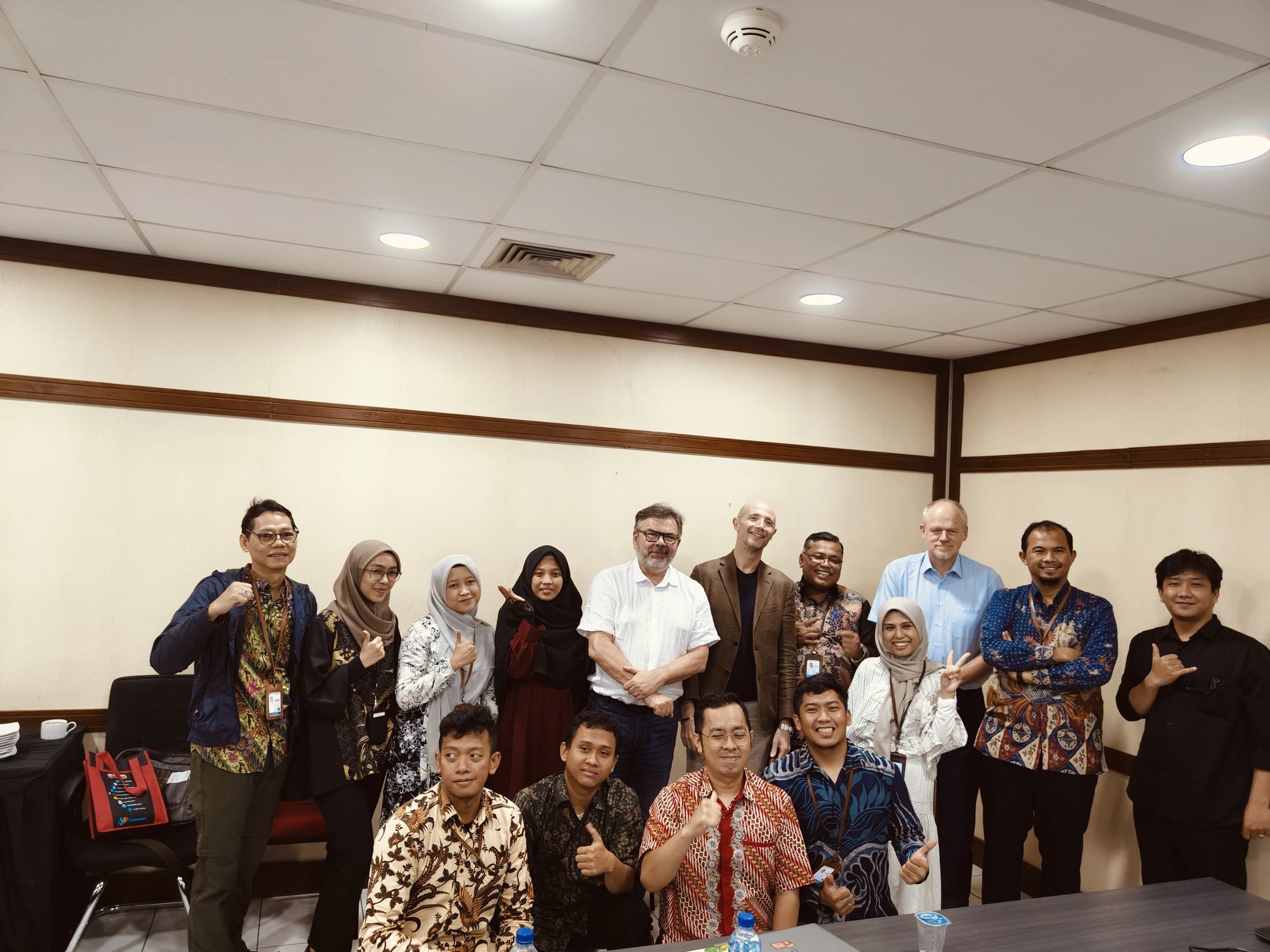
From July 2 to July 5, 2024, BPS Statistics Indonesia hosted the Data Cube Training, a pivotal event in the "One Rice Estimation" program. This workshop was an integral part of the "One Rice Estimation" program, which aims to revolutionize rice production data collection in Indonesia through the utilization of cutting-edge Earth Observation (EO) technologies. The initiative brought together a remarkable blend of local expertise and international support, ensuring a comprehensive learning experience for all participants. The workshop was supported by ESCAP and FAO, notable figures from these organizations, Eric Deeben and Dr. Lorenzo De Simone, played key roles in the workshop, contributing their extensive knowledge and experience in agricultural statistics and remote sensing technologies.
The workshop featured esteemed trainer Prof. Dr. Gilberto Câmara Neto, a Brazilian researcher renowned for his contributions to Geoinformatics, GIScience, Spatial Analysis, and Land Use Modelling. Prof. Câmara, a Senior Research Fellow at Brazil's National Institute for Space Research (INPE), is internationally celebrated for his efforts in promoting free access to geospatial data and his instrumental role in the satellite monitoring of the Brazilian Amazon rainforest.
The training sessions were designed to equip participants with practical skills in managing and analyzing Earth Observation (EO) data cubes. The first day introduced participants to the concepts of Satellite Image Time Series (SITS), emphasizing the importance of continuous crop growth monitoring. The hands-on training included setting up virtual machines on Microsoft Azure, configuring them, and installing SITS packages. This initial setup laid the foundation for participants to effectively handle and analyze large datasets.
On the second day, participants delved into the development of EO data cubes, learning about various satellite data sources such as Landsat, MODIS, Sentinel 1, and Sentinel 2. Techniques for data fusion and temporal stacking were covered, allowing participants to create comprehensive and temporally organized datasets. These sessions were crucial for understanding how to combine data from different satellites to analyze changes over time effectively.
The third day focused on training samples for SITS analysis. Participants explored methods for obtaining and validating training samples, employing techniques like clustering and Self-Organizing Maps (SOM) to measure the quality of these samples. The training also addressed the challenge of unbalanced training sample sets, introducing the Synthetic Minority Over-sampling Technique (SMOTE) to improve training sets.
On the final day, participants were introduced to various classification algorithms, including Random Forest, Dynamic Time Warping (DTW), and Deep Learning. Practical sessions on classifying EO data cubes and understanding the resulting probability cubes were conducted. Techniques for smoothing probability cubes and producing labeled classified maps were demonstrated, along with methods for assessing the accuracy of classification results to ensure reliability.
The Data Cube Training Workshop significantly enhanced the skills of Indonesian experts in EO data management and analysis, crucial for modernizing agricultural statistics. The training equipped participants with advanced methodologies for accurate rice production estimates, fostering better-informed food policies and enhanced food security in Indonesia. The event was a resounding success, setting a strong foundation for future advancements in agricultural data collection and analysis.
